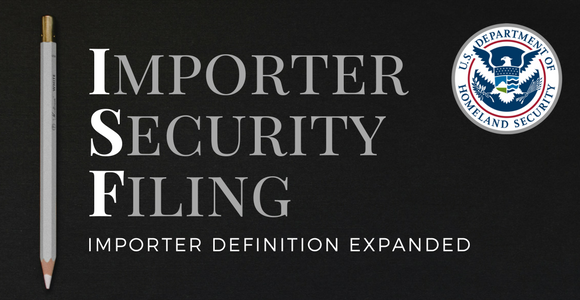
Customs and Border Protection (CBP) has issued a final rule, effective May 14, that will expand the definition of an Importer Security Filing (ISF) importer—the party responsible for filing an ISF for certain types of shipments. The changes will add parties that have a commercial interest in the cargo and the best access to the required information.
Before the Rule
Currently, the regulation designates a ISF Importer even if that party has no commercial interest in the shipment and limited access to the ISF data. In some cases, the party responsible may not even be involved in the importation when the ISF must be filed. Therefore, it is unclear as to which party has the responsibility for filing the ISF. It is also raises confidentiality concerns because there are times when the private party, that has the data, gives it to the ISF importer who then sends it to CBP, causing the information to be passed through many hands.
After the Rule
The new definition will expand the definition of ISF importer for foreign cargo remaining on board (FROB) cargo, by adding non-vessel operating common carrier (NVOCC) instead of just the vessel operating common carrier (VOCC), depending on which of these is the party causing the goods to arrive. The rule will also add to the definition of ISF importer for Immediate Exportation (IE) and Transportation and Exportation (T&E) shipments by including the goods’ owner, purchaser, consignee, or agent such as a licensed Customs broker, as well as for goods delivered to an Foreign Trade Zone (FTZ). This will ensure that the responsible party will most likely have direct knowledge of the ISF data.
By expanding the definition this rule will simplify the transmission of ISF information to CBP, eliminate confusion regarding the responsible party, and significantly reduce confidentiality concerns. If you have questions about this final rule or are interested in building an Import Compliance Program contact Mohawk Global Trade Advisors.
By Danielle Leonard

